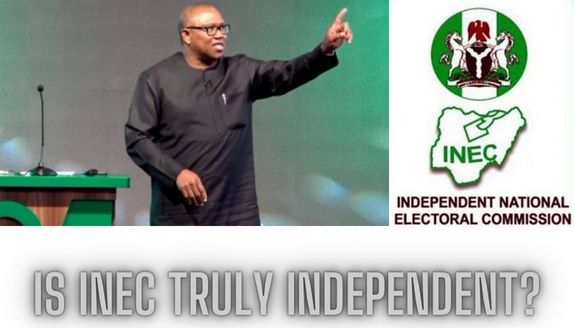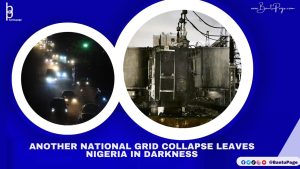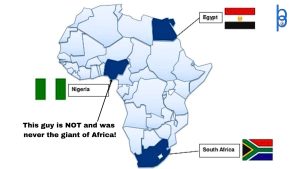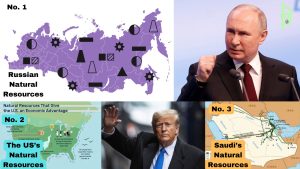
Introduction
The outcome of the 2023 presidential elections might have been announced and a candidate declared, but there has been a lot left to be desired from the entire process and outcome. Like every other election in Nigeria, the latest presidential elections have left candidates and political parties disenchanted with the process that saw the announcement of APC’s flagbearer Bola Tinubu as the winner of the election. Since the announcement of the president-elect, other candidates such as Peter Obi of the Labour Party (LP) and Atiku Abubakar of the Peoples Democratic Party (PDP) have already begun the process of engaging INEC and the APC in a legal battle.
A Case for Obi?
Peter Obi, the presidential candidate of the Labour Party (LP) in the just concluded 2023 general elections, is reportedly gathering a legal team of Senior Advocates of Nigeria (SANs) to challenge the outcome of the elections, which he allegedly lost under controversial circumstances. According to unconfirmed reports, Obi has already recruited at least twelve SANs, including some of the most revered legal minds in the country. The team is to be led by Dr Livy Uzoukwu (SAN), a renowned solicitor who has represented clients in high-profile cases. Other members of the team include Chief Awa Kalu (SAN); Dr Onyechi Ikpeazu (SAN); P.I.N. Ikwueto (SAN); Chief Ben Anyachebe (SAN); S.T. Hon (SAN); Arthur Obi Okafor ( SAN); Ik Ezechukwu (SAN); J.S. Okutepa (SAN); Dr Mrs Valerie Azinge (SAN); Emeka Okpoko (SAN); and Alex Ejesieme (SAN). According to reports, Obi’s legal team is still being constituted, and there are more Senior Advocates to be recruited. With such a formidable legal team, it remains to be seen what the outcome of the court battle will be.
Is the Nigerian Electoral System Flawed Beyond Reforms?
The Nigerian electoral system has been marred by controversies and allegations of rigging for many years. Prior to the 2023 elections, the 2007 elections have been considered in many quarters as the most controversial and corrupt elections since Nigeria returned to democracy in 1999. Despite the recruitment of a new Chairman, the painstaking electoral reforms of the legislature and executive, as well as the introduction of technological innovations, the 2023 presidential election is already making a case as the most corrupt election in the history of Nigeria’s democracy. One of the most recent controversies is the ongoing case involving the former Governor of Anambra State and current presidential candidate of the Labour Party, Peter Obi, and the Independent National Electoral Commission (INEC) over the use of the Biometric Voter Accreditation System (BVAS) and INEC Result Viewing Portal.
The BVAS is a system used by INEC to verify the identity of voters and prevent multiple voting during elections. However, the BVAS has come under scrutiny following allegations that it was tampered with during the presidential elections.
Obi has accused the INEC of rigging the elections by manipulating the BVAS. Obi claims that the BVAS was reconfigured in favor of the ruling All Progressives Congress (APC) and that this led to the manipulation of the results in favor of the APC.
Following the announcement of the results, Obi and Atiku Abubakar of the PDP have filed separate petitions at the Federal Court of Appeal, challenging the results of the elections.
Obi and the Labour Party claim that the purpose of the application was to allow them to extract data from the BVAS that “reflect the real results from Polling Units,” via the assistance of their legal team, which was supervised by Dr. Onyechi Ikpeazu, SAN. They both applied for the Certified True Copy (CTC), of every piece of information in the BVAS.
Nevertheless, INEC has asked the court to reject the plea through a team of four Senior Advocates of Nigeria, led by Mr. Tanimu Inuwa. According to INEC, Obi and Labour Party’s proposal will have an impact on its preparation for the upcoming Governorship and National Assembly elections.
According to INEC, 176,000 BVAS were deployed to polling units during the presidential election, it informed the court.
“Each polling location has a unique BVAS machine that we must set up for the next elections. It will be quite challenging for us to reconfigure the 176, 000 BVAS within the time.”
Despite the setbacks, Obi and the LP have continued to push their case, defiantly alleging that the BVAS was tampered with, and that INEC also colluded with the APC to rig the elections.
While the controversy surrounding the 2023 presidential election in Nigeria is largely based on allegations, there are some concerning statistics and references that have added gasoline to the inferno. For instance, according to rumors, there were issues with the Biometric Voter Accreditation System (BVAS) and the Independent National Electoral Commission’s Results Viewing Portal (IREV). The BVAS was supposed to capture voters’ fingerprints and photographs to prevent multiple voting, while the IREV was meant to allow for real-time transmission of results. However, both systems failed to function as expected, leading to questions about the integrity of the voting process.
Moreover, there have been allegations of changing voting figures, with some opposition parties claiming that their votes were either inflated or reduced. For example, in the state of Kano, the main opposition party, PDP, alleged that their votes were tampered with, leading to a skewed result in favor of the ruling party, APC. Similarly, there have been reports of questionable voter returns in some states, with some polling units recording more votes than the number of registered voters.
The fact that INEC has been slow to release necessary documents to support Obi’s case also serves to fuel suspicion that there may be something to hide. Besides, due to the lack of confidence in the ruling party in some quarters, there has been increased suspicion that the APC is desperate for their candidate to win and that they may resort to any means necessary. This underscores the need for a thorough investigation to ensure that the will of the people is upheld.
In conclusion, the controversy surrounding the 2023 presidential election in Nigeria, including allegations of voter fraud, server failure, and questionable voter returns in some states, has given rise to doubts about the integrity of the electoral process. Peter Obi’s decision to challenge the results of the election in court is therefore not surprising, given the serious nature of the allegations. It is therefore essential that all parties respect the legal process and allow it to run its course, in the interest of justice and democracy.
-Writer: Oche Anejo-







